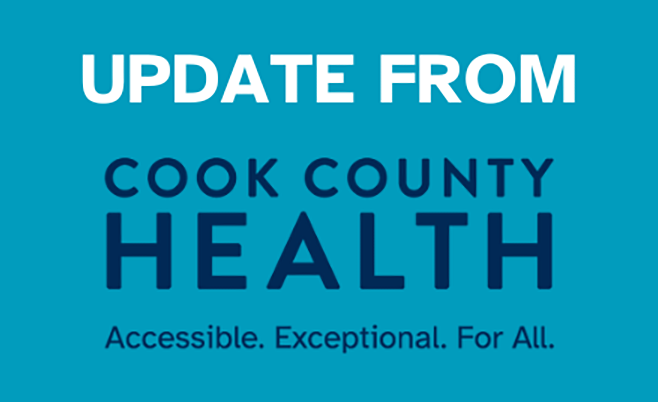Cook County Health’s Chairman of Urology will be one of the experts invited to examine Vice President Joe Biden’s “Cancer Moonshot Initiative,” at the upcoming Congressional Black Caucus Annual Legislative Conference.
Courtney M.P. Hollowell, MD, FACS, Chairman of Urology at Cook County Health, will be discussing the initiative on September 16 during the Health Braintrust Symposium at the conference in Washington, DC.
Dr. Hollowell, who is a nationally known expert on men’s health and prostate cancer, was one of three cancer specialists who was asked by Congressional Black Caucus Health Braintrust Chair Congresswoman Robin Kelly (IL-2), to sit on the Black Caucus forum hosted by the National Minority Quality Forum.
The purpose of the panel is to ensure that all races and genders are adequately represented in the action plans put forth by the “Cancer Moonshot Initiative,” as there are known health disparities for cancer treatment among different races and genders.
“A lot of the research that exists on cancer is on white men. But study after study has shown that women and other races don’t always have the same outcome with cancer treatments,” Dr. Hollowell noted. “So we want to make sure everyone is represented in this initiative.”
He added, “It is a great honor for me to have the opportunity to share insight on how we can make meaningful progress in the fight against cancer over the next generation.”
Biden’s “Cancer Moonshot Initiative,” a $1 billion push to eliminate cancer as we know it, is a national effort aimed at identifying new ways to prevent, diagnose, and treat cancer, the White House said. Specific action plans for how the initiative plans to reach those ambitious goals were released on September 7, 2016.
In other news, September is Prostate Cancer Awareness Month.
Prostate cancer is the most common non-skin cancer in American men today. “More than 500 men in the US are diagnosed with it each day,” says Dr. Hollowell. Making the decision to be screened for prostate cancer depends on a variety of factors and recommendations vary considerably.
But Dr. Hollowell urges men to have a conversation with their doctor by age 50 on the drawbacks and benefits of being screened for prostate cancer.
“If you’re African-American or have a family history of prostate cancer, you should have that discussion even earlier at 45 years old,” Dr. Hollowell said.
“African-American men are more likely to be diagnosed with prostate cancer and more likely to die from the disease,” Dr. Hollowell points out.
Dr. Hollowell notes, “the good news is the majority of prostate cancer occurs as slow-growing and non-life-threatening which can be managed with close observation by your doctor, known as active surveillance.”

